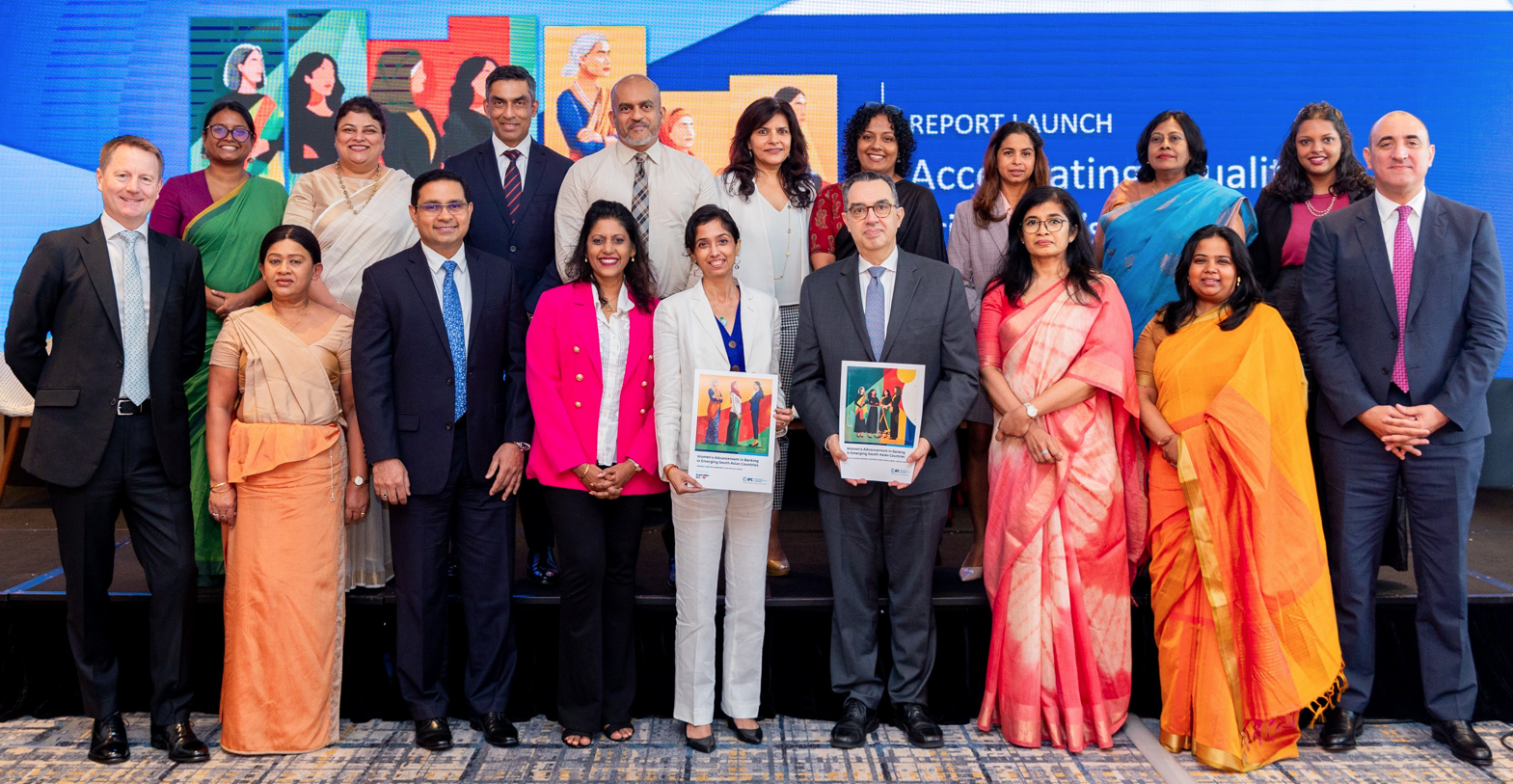
Colombo, Sri Lanka, June 3, 2024—A new International Finance Corporation (IFC) report reveals that Sri Lanka surpasses regional counterparts in recruiting women at the entry-level in the banking sector, with women comprising 46 percent of new recruits. The report, supported by the Women in Work program—a partnership between IFC and the Australian government—also highlights Sri Lanka's leadership in board-level gender diversity, with women holding 27 percent of board positions, compared to 20 percent in Nepal and 14 percent in Bangladesh.
The pioneering report, Women's Advancement in Banking in Emerging South Asian Countries, aims to optimize opportunities that enable women to advance to senior roles in the banking industry across South Asia. This multi-country study, among the first of its kind in the region, focuses on private-sector commercial banks in Bangladesh, Nepal, and Sri Lanka, where women constitute 30 percent of the banking workforce compared to the global average of 52 percent.
Research conducted across seven leading private commercial banks in Sri Lanka, representing 41 percent of the market share, forms the basis of insights on Sri Lanka.
While Sri Lanka's banking industry is close to achieving parity in hiring women and is considerably ahead of other countries in terms of women's share in the workforce, women's progression does not match their career aspirations or progression rates for men. Representation drops from 40 percent at entry-level to 27 percent in middle management and further to 20 percent in senior management roles.
"Investing in the potential of women leaders isn't just about equality, it's about unlocking the full spectrum of talent and driving sustainable growth–exactly what Sri Lanka needs for a resilient economic recovery," said Imad N. Fakhoury, IFC's Regional Director for South Asia. "Addressing the multifaceted challenges faced by female bankers requires comprehensive and collective action, rather than isolated interventions. We must tackle these barriers—whether policy, process, or culture–related—in a targeted manner, creating an inclusive banking sector and driving greater economic growth."
The report underlines how barriers such as lack of fair evaluations, sociocultural constraints and non-conducive work environments curtail women's growth prospects in the Sri Lankan banking industry. While banks and policymakers have initiated several steps to improve women's participation and career progression, stronger commitment from leadership is essential to create inclusive workplaces. The report reveals skepticism among many employees, including senior leaders and more than 50 percent of middle managers, regarding the importance of female leadership for businesses to be competitive.
Previous research indicates that commercial banks with at least 15 percent of women in senior management achieve up to 33 percent higher return on equity. A growing body of evidence further links an increase in women's representation in organizations to better performance on business metrics.
"This comprehensive, data-based report is a strong starting point for the banking sector to improve long-term policies allowing women and men to achieve their potential. The sector – as well as other organizations – should take note of findings that show an increase in women's representation in senior manager or higher roles delivers higher returns and stronger business outcomes," said HE Paul Stephens, Australian High Commissioner for Sri Lanka.
The report also recommends targeted efforts in Sri Lanka to bolster women's participation and advancement in commercial banking. These include establishing organizational commitment and accountability for gender diversity, building equitable and safe workplaces, and developing supportive ecosystems, networks, and professional development opportunities. These findings and recommendations aim to guide industry actors—C-suite leaders in commercial banks, policymakers, industry bodies, and investors—towards increasing women's representation in leadership in the banking industry.
About IFC
IFC—a member of the World Bank—is the largest global development institution focused on the private sector in emerging markets. We work in more than 100 countries, using our capital, expertise, and influence to create markets and opportunities in developing countries. In fiscal year 2023, IFC committed a record $43.7 billion to private companies and financial institutions in developing countries, leveraging the power of the private sector to end extreme poverty and boost shared prosperity as economies grapple with the impacts of global compounding crises. For more information, visit www.ifc.org
Stay Connected with IFC on social media.
Contacts
Stay Informed
Sign up to have customizable news & updates sent to you.